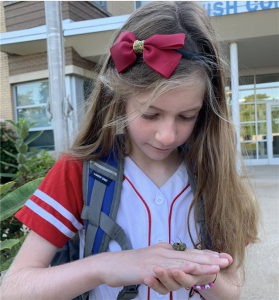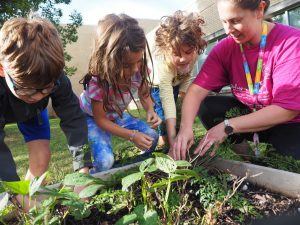Daylight hours are waning, the cold is settling in, and I am reminded of a story in Tractate Avodah Zarah (Babylonian Talmud) in which our rabbis speak of Adam, the first person ever created, who experienced this season for the first time:
Because Adam, who was created on Rosh HaShanah, saw that each day
was getting shorter, he said, “Oy for me! Maybe, since I have sinned,
the world is becoming engulfed in darkness and it will all return
to chaos and disorder, and this is the death which has been decreed upon
me from the Heavens!”
He stood up in order to sit for 8 days in fasting and prayer.
When Adam saw that it was Tevet (the new Jewish month, which always
falls towards the end of Hanukkah) and that days were getting
longer he said, “It is the way of the world!” He went and made an
eight-day festival. The next year he observed both these (8 days of
fasting) and these (eight days of celebration) as festivals.
 Is Adam right to fear that the loss of daylight and impending disaster is the result of human behavior? Does his fasting and prayer avert the chaos they fear and set the world back on a desired track? In the universe of this story. . . Maybe so!
Is Adam right to fear that the loss of daylight and impending disaster is the result of human behavior? Does his fasting and prayer avert the chaos they fear and set the world back on a desired track? In the universe of this story. . . Maybe so!
We know that choices we make about the ways we consume or share resources contributes to our states of personal and environmental health, degradation and repair. Scientific studies have shown that during the early months of the Covid pandemic, the earth experienced significant reductions in climate and water pollution. Reports indicate that daily global CO2 levels dropped by 17% and levels of nitric dioxide lowered by 20–40%, across the U.S., Western Europe, and China.
My father always tells me that time is the most precious resource we have, because in the end, it is the resource we trade for everything else. I can’t help but imagine what tikkun (repair) we might be able to effect by taking a second look at what we consider to be the truly valuable resources and real miracles in our lives. At Mirowitz we work with students every day to spark and support their desires to affect the world in positive ways.
Hanukkah means dedication, referring to the rededication of the sacked Temple in Jerusalem after the Hasmoneans recaptured it from the Seleucids. What if this Hanukkah, we make a point of rededication — engaging in conversations about our consumption of resources, and taking the eight days to consider ways in which our use of fossil fuels, fast fashions, food and energy are speeding us towards climate chaos and contributing to the anxiety of our children.
Check out this guide by Hazon, a Jewish organization dedicated to environmental sustainability, for some thoughts on “greening Hanukkah,”
Hag urim same’ah! (Happy festival of lights)
Reb Scott Slarskey
Director of Jewish Life

